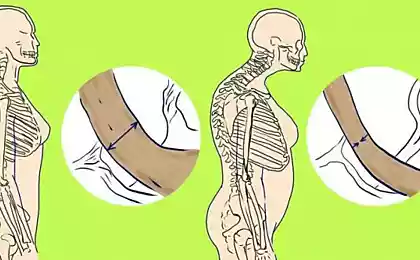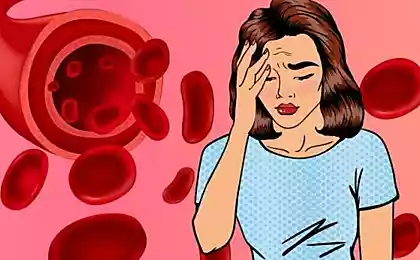258
7 Festive To, Chto Vam No Hwataet Vitamin D

In today’s world, where we often spend most of our time indoors and get little sunlight, vitamin D deficiency is becoming an increasingly common problem. This important vitamin plays a key role in maintaining overall health, including the prevention of mental illness, oncology, cardiovascular and autoimmune diseases, and helps to resist most infections. How do you know if you are lacking in vitamin D? Consider the seven main signs of deficiency of this vital nutrient.
1. Overweight
Research suggests that vitamin D deficiency may be linked to weight gain and obesity. Vitamin D plays a role in fat metabolism and insulin regulation, which affects the distribution of adipose tissue in the body.
“A lack of vitamin D can disrupt metabolism, contributing to fat accumulation and weight gain,” said Dr. Elena Smirnova, an endocrinologist.
2. Aching Bones
One of the most well-known signs of vitamin D deficiency is bone and muscle pain. Vitamin D is necessary for the absorption of calcium, which strengthens bone tissue. Without enough of this vitamin, bones can become fragile and painful.
3. Skin darkening
Vitamin D is responsible for maintaining healthy skin. Deficiency can lead to hyperpigmentation, darkening of the skin and an increased risk of skin diseases.
4. Age 50+
With age, the body’s ability to synthesize vitamin D decreases. People over the age of 50 are particularly susceptible to its deficiency, which increases the risk of osteoporosis and other age-related diseases.
5. Mood swings
Unstable mood, depression, and anxiety may be associated with vitamin D deficiency. This vitamin plays an important role in the regulation of neurotransmitters that affect emotional state.
“Vitamin D deficiency is common in people with depression and other mood disorders,” said Dr. Sergey Ivanov, a psychiatrist.
6. GI problems
The gastrointestinal tract can also signal a lack of vitamin D. Symptoms may include constipation, diarrhea, and other digestive disorders. Vitamin D promotes the health of the intestinal flora and improves nutrient absorption.
7. Head sweating
Excessive sweating, especially on the head, can be one sign of vitamin D deficiency. This symptom often accompanies other signs, such as fatigue and weakness.
How to Optimize Your Vitamin D Level:
- Receiving Sunlight: Regular sun exposure promotes the natural synthesis of vitamin D in the body.
- Dietary Sources: Include foods rich in vitamin D, such as fatty fish, eggs, and fortified dairy products.
- Vitamin D supplements: If necessary, take vitamin supplements, but only on the recommendation of a doctor.
- Maintaining a healthy lifestyle: Regular exercise and a balanced diet help maintain optimal vitamin D levels.
- Regular Medical Examinations: Conduct blood tests to monitor vitamin D levels and take timely action for vitamin D deficiency.
Expert opinion
Health professionals emphasize the importance of maintaining adequate levels of vitamin D for overall health. Regular checkups and a conscious approach to your diet and lifestyle can prevent many diseases and improve your quality of life.
“Vitamin D is not just a supplement, but a necessary element for the health of the whole body.” Its deficiency can lead to serious consequences, so it is important to monitor its level. – Dr. Anna Petrova, nutritionist.
User Stories
Many people report significant improvements in their health after optimizing their vitamin D levels:
- Irina, 42: After I started taking vitamin D on the recommendation of a doctor, my bone pains decreased and my mood became more stable. ?
- Alexander, 55: Regular outdoor walks and the inclusion of fatty fish in the diet helped me get rid of gastrointestinal problems and improve my overall well-being. ?
- Maria, 30: After supplementing with vitamin D, I felt a significant reduction in stress levels and improved sleep.
Conclusion
Vitamin D deficiency can have a serious impact on your health, affecting both physical and mental health. Signs of deficiency, such as overweight, aching bones, darkening of the skin, mood swings and others, should not be ignored. Optimizing your vitamin D levels through sunlight, proper nutrition, and supplementation if necessary can significantly improve your quality of life and prevent many diseases.
“Caring for one’s health begins with an awareness of the needs of the body. Vitamin D is one of the key elements that must be taken into account in the daily diet. — Dr. Sergey Ivanov, neurologist.
Don’t put off taking care of yourself for later. Start today and feel the difference in your health and quality of life.























